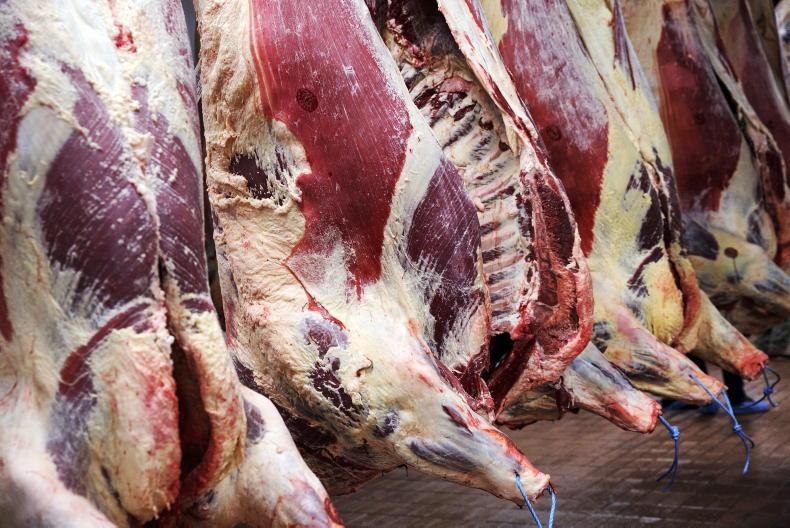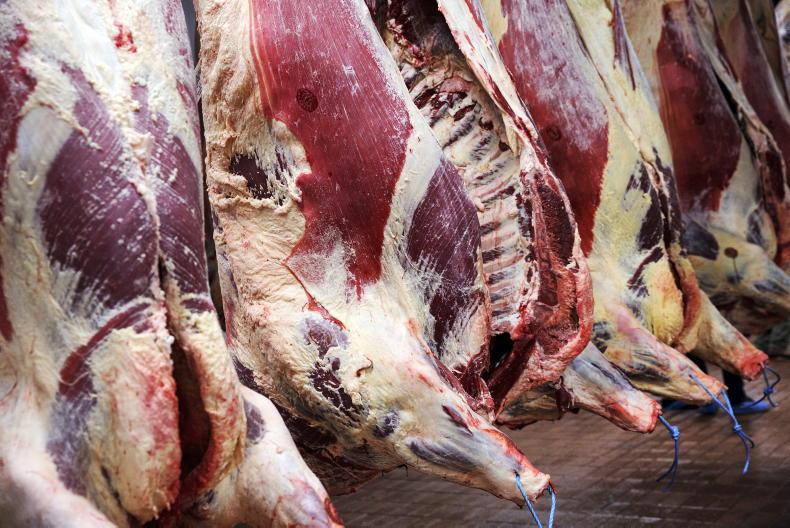Outgoing European Commission president Jean-Claude Juncker rushed to conclude the outline of a trade agreement with four South American countries in the Mercosur bloc last Friday before his replacement was announced on Tuesday. The deal lowers EU tariffs on 160,000t of beef from Brazil, Argentina, Paraguay and Uruguay. Another 180,000t of chicken will have duty-free access to the EU. South American farmers will also compete more freely with EU producers within quotas of sugar, pigmeat, rice, honey and sweetcorn.
Mercosur countries have consistently exported more meat to the EU than their tariff-rate quotas, evening out costs between high- and low-duty shipments. The figures above may therefore translate into even more meat.
An EU study has shown that this and other proposed trade deals, including those with the US and Australia, would cut beef prices by 8% to 16%, which the IFA estimates would cost Irish farmers €500m to €750m.
Commission sources have countered that increased beef exports through the Mercosur deal would represent only 1% of EU consumption and cause a drop in beef prices of less than 1%.
The European Commission insists that “EU standards will not be relaxed in any way by the agreement with Mercosur”. The Commission will inspect individual farms for pre-approval, and can push a “red button” to stop imports from a supplier or region in case of a food scare. The agreement also includes “strong language committing to effectively implement the Paris Agreement” on climate change.
The EU secured the abolition of tariffs on a range of dairy products.
European pigmeat, malt, spirits including Irish whiskey, soft drinks, biscuits and confectionary as well as a range of Mediterranean products will be allowed into Mercosur countries duty-free. Protected geographical indications will be respected. The big gains for the EU are for industrial goods such as cars, machinery, chemicals and pharmaceuticals and services.
Mercosur countries have committed to lower internal taxes on their grain exports, which may deliver cheaper feed ingredients for European farmers but more intense competition for tillage.
Read more
Mercosur timeline: what happens next?
The political view on Mercosur
Battle lines drawn for years of wrangling
Exclusive interview: Hogan defends Mercosur deal
Creed vows to ‘frustrate’ Mercosur deal at every opportunity
Economic assessment of deal on way - Taoiseach
‘This deal isn’t all bad’ – Humphreys
Mercosur deal ‘catastrophic’ for NI farmers
Mercusor Trade Agreement: beef sacrificed for BMWs
Irish and European farmers 'sold out', say farm organisations
Can Ireland block the Mercosur trade deal?
Mercosur shock but Brexit must remain the focus
Outgoing European Commission president Jean-Claude Juncker rushed to conclude the outline of a trade agreement with four South American countries in the Mercosur bloc last Friday before his replacement was announced on Tuesday. The deal lowers EU tariffs on 160,000t of beef from Brazil, Argentina, Paraguay and Uruguay. Another 180,000t of chicken will have duty-free access to the EU. South American farmers will also compete more freely with EU producers within quotas of sugar, pigmeat, rice, honey and sweetcorn.
Mercosur countries have consistently exported more meat to the EU than their tariff-rate quotas, evening out costs between high- and low-duty shipments. The figures above may therefore translate into even more meat.
An EU study has shown that this and other proposed trade deals, including those with the US and Australia, would cut beef prices by 8% to 16%, which the IFA estimates would cost Irish farmers €500m to €750m.
Commission sources have countered that increased beef exports through the Mercosur deal would represent only 1% of EU consumption and cause a drop in beef prices of less than 1%.
The European Commission insists that “EU standards will not be relaxed in any way by the agreement with Mercosur”. The Commission will inspect individual farms for pre-approval, and can push a “red button” to stop imports from a supplier or region in case of a food scare. The agreement also includes “strong language committing to effectively implement the Paris Agreement” on climate change.
The EU secured the abolition of tariffs on a range of dairy products.
European pigmeat, malt, spirits including Irish whiskey, soft drinks, biscuits and confectionary as well as a range of Mediterranean products will be allowed into Mercosur countries duty-free. Protected geographical indications will be respected. The big gains for the EU are for industrial goods such as cars, machinery, chemicals and pharmaceuticals and services.
Mercosur countries have committed to lower internal taxes on their grain exports, which may deliver cheaper feed ingredients for European farmers but more intense competition for tillage.
Read more
Mercosur timeline: what happens next?
The political view on Mercosur
Battle lines drawn for years of wrangling
Exclusive interview: Hogan defends Mercosur deal
Creed vows to ‘frustrate’ Mercosur deal at every opportunity
Economic assessment of deal on way - Taoiseach
‘This deal isn’t all bad’ – Humphreys
Mercosur deal ‘catastrophic’ for NI farmers
Mercusor Trade Agreement: beef sacrificed for BMWs
Irish and European farmers 'sold out', say farm organisations
Can Ireland block the Mercosur trade deal?
Mercosur shock but Brexit must remain the focus










SHARING OPTIONS